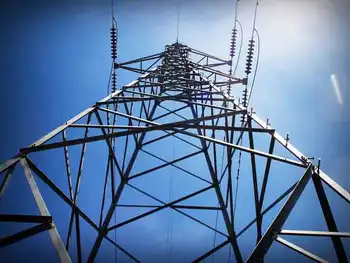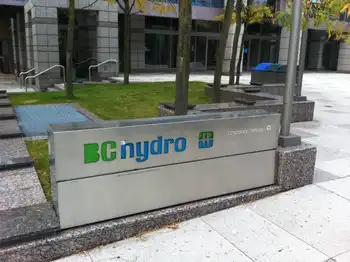More California agricultural businesses go solar
Now the sun is helping the family churn out myriad rice products, from chips to cakes to pasta.
Lundberg Family Farms, which bills itself as the nation's largest producer of organic rice and rice products, is among a small but growing number of California growers and processors who are turning to solar power to help them run their operations.
"It made sense from an environmental point of view and a business point of view," said Jessica Lundberg, whose family has been growing rice in the Richvale area since 1937.
There's no count of how many growers have invested in solar, but Bernadette Del Chiaro, a clean energy advocate with the group Environment California, said she has seen a growing number of agricultural companies install solar panels over the last five years.
That's particularly true among wineries and packing plants that have high refrigeration and air conditioning costs.
"We're seeing a lot of wineries go solar, and it's not just to green their image," she said. "It's because they can actually save money."
Barry Cinnamon, chief executive officer of Akeena Solar, a Los Gatos company that installs residential and commercial solar energy systems, estimates that 50 to 100 wineries are using solar energy. His company has installed about a dozen of those systems.
More than 960 California companies have applied for rebates through the state Public Utilities Commission since Jan. 1, 2007, for installing solar panels, but there's no breakdown available on how many of those applicants are in agriculture.
Besides the rebates, companies that install solar panels can qualify for a federal tax credit on the purchase and installation costs. They also can get credits from utilities for any unused solar-generated electricity they send to the power grid.
Also, installation of solar energy systems does not trigger a property tax reassessment.
Ron Martella said his family's walnut processing company, Grower Direct Nut Co., took a long look at the potential economic benefits before deciding to install solar panels this year.
"We're in one of the cheapest electrical districts in the state," said Martella, a director of the company, which is located in Hughson, about 80 miles south of Sacramento. "We came to the conclusion that with the tax credits and rebates, the money we'd save on electricity would be a positive thing for our company in the long run."
He expects the $3.5 million project to be paid off in about eight years.
Lundberg farms installed its first solar system, five long sets of panels spread over about an acre, in 2006. It added another set of panels on a warehouse roof in 2007.
Together, those two systems provide 10 percent to 15 percent of the company's electricity, said Lundberg, who chairs the board of directors and manages the farm's seed nursery.
The company has plans to build a new office and warehouse and is considering incorporating new solar systems into those projects.
Lundberg Farms won a Green Power Leadership Award from the U.S. Environmental Protection Agency this year for its use of renewable energy.
Besides the power it obtains from its solar panels, the company buys renewable energy credits that help develop wind power. That enables Lundberg Farms to say it gets 100 percent of its electricity from renewable sources.
The EPA said Lundberg's energy program was the "the largest U.S. renewable energy commitment by an agribusiness." The company also won the award in 2004.
Lundberg traces her family's interest in renewable energy to her grandparents' experiences farming in the Midwest during the Dust Bowl years of the 1930s.
"They had seen what happens... if you don't take care of your resources," she said. "When they came to California and had a chance to start again, they took it really seriously."
Her grandfather, who started farming on about 150 acres about 70 miles north of Sacramento, took steps to protect the quality of his soil and refused to burn off rice stubble after each harvest, a practice that can turn the Sacramento Valley skies into a smoky haze.
The decisions to buy wind-energy credits and develop solar power were a continuation of that conservation philosophy, Lundberg said.
Her father and his three brothers started the rice mill in the 1960s and began growing rice without chemicals. Now a third generation of cousins and cousins' spouses has moved into positions at the company, which grows 17 varieties of rice on about 15,000 acres.
It turns 45 million to 60 million pounds of rice a year into more than 150 products, including varieties of rice chips, rice syrup, rice pasta, rice cakes and one- and two-pound packages of rice. It also sells rice in bulk quantities.
Company officials figure their solar panels will be providing them with electricity for the next 30 to 40 years.
Rebates and tax credits covered about half the cost of the $3.5 million projects. They expect to make up for the rest of the cost in eight to 10 years.
"We're still carrying the cost of installation, paying them off," Lundberg said. "But we think it was a good business decision. It's just so satisfying to be able to contribute like that, to have something tangible we are able to do."
Related News

Atlantic grids, forestry, coastlines need rethink in era of intense storms: experts
HALIFAX - In an era when storms with hurricane-force winds are expected to keep battering Atlantic Canada, experts say the region should make major changes to electrical grids, shoreline defences and even the types of trees being planted.
Work continues today to reconnect customers after post-tropical storm Dorian knocked out power to 80 per cent of homes and businesses in Nova Scotia. By early afternoon there were 56,000 customers without electricity in the province, compared with 400,000 at the storm's peak on the weekend.
Recent scientific literature says 35 hurricanes -- not including post-tropical storms like Dorian -- have made landfall in…





